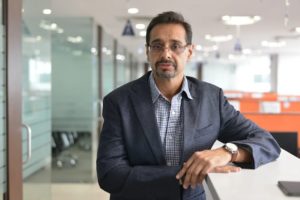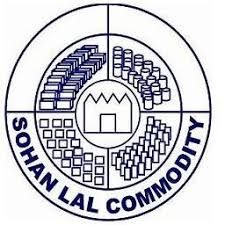https://www.freepressjournal.in/business/slcm-does-warehousing-without-owning-warehouses-plans-going-global-as-well
SLCM manages warehousing and more without owing physical infrastructure

Sandeep Sabharwal, CEO, Sohan Lal Commodity Management (SLCM) group was quick to understand the need for technology in warehousing, procurement and just in time delivery systems in agriculture. This approach enabled SLCM to develop services that supported its growth as well as helped raise growth capital since its inception in 2009.
Today, the company is a leading agri-logistics company that provides services such as commodity warehousing, collateral management, procurement services for its clients, agri financing, risk mitigation services, and other services to cater to the needs of the agriculture ecosystem.
Of course, the competition isn’t happy. They point to SEBI’s strictures against SLCM. But these were stayed by the SAT. SEBI later withdrew all its observations.
In an interview, Sabharwal shares the company’s growth plan with FPJ’s Jescilia K and RN Bhaskar.
Edited excerpts:
How did SLCM come into existence?
Sohan Lal Commodity Management (SLCM) group is named after my grandfather. He came to India after partition as a refugee and started a pulse processing unit in Delhi. My dad, who was a chemical engineer and worked for DCM Shriram Group, took early retirement and joined my granddad’s business (as he was getting old). My father ran that company for 11 odd years before I was given the reins as he fell sick. At that time, I was doing my MBA in Boston. But I was forced back to India. I then ran the business for nine years with my father. Thereafter, I scaled the business tremendously — from 15 tonnes a day to 1,000 tonnes a day when I sold the business. I sold that business as I realised that it will not allow me to scale up due to a lack of value addition and India being a cost-sensitive market.
During that time, I realised that there were no service providers to service mill operators. That is when this idea came in to provide services like warehousing, financing, logistics, and so on. That is when I founded SLCM in 2009.
Tell us about your journey
I borrowed four people from the running unit. I also borrowed Rs 16 lakh of loan from my father, friends and other relatives. I started with renting one warehouse in Delhi (which was 8,500 sq feet). As I was already in the processing business, I was able to get some processors as my first few clients. These were my peers, or say, competitors in the processing businesses.
How many warehouses do you’ll manage?
As of August 31st, 2021, we operate 7,157 warehouses consisting of a total area of 102.54 million sq feet. In the case of capacity, the throughput capacity is at 1,754 million metric tonnes. We handle over 959 different commodities.
We achieved all this without owning a single warehouse. I am not a real estate company.
Tell us about the products or services the company developed.
We designed an algorithm for which we applied for a patent five years ago.
We came up with a programme called AgriReach. It is an algorithm-based service that we built seven years ago. Through this, we are able to understand the behaviour of a warehouse, of crop based on the weather and other factors in the region (it is stored in). AgriReach allows us to store a crop irrespective of weather patterns, crop type, geography, infrastructure and so on.
Due to this, crop losses were reduced from 10 per cent to a mere 0.5 per cent. AgriReach is a prevention mechanism that reduces losses.
Are you planning on raising any funds?
We have been raising capital for some time now. We are net worth, EBIDTA and cash positive. We do have to raise capital to survive. But we will look at an opportunity to continue growing.
In 2010, Nexus Venture Partners found our idea interesting and they decided to back us. Nexus Venture Partners is known to back technology companies but they backed an agriculture company like us. It was a surprise to many. A year down the line, Mayfield invested in our company.
Today, Nexus Venture Partners made multiple investments in the company. Meanwhile, other investors in the company today are Incofin Investment, ResponsAbility, Everstone and ICICI’s Emerging India Fund.
This company, which started with a capital of Rs 16 lakh, today holds a net worth of Rs 50 crore.
Do you have any focus areas?
I would like to educate the sector and say that the times are changing. Thus, they should focus on improving the user-interface experience. This will attract the millennials in the agriculture space as they look at the user-interface experience.
While we expand to new areas, we want to augment our position in India.
Tell us more about your procurement business and financing business.
We entered the procuring business as we realised pure warehousing will not work. This is because we need to cater to the needs of the whole agriculture ecosystem. I am not a trader but one who is facilitating trade. I procure for them and provide the crop at a commission and also finance them.
We procure produce worth Rs 3,500 crore every year and every month we procure crops worth Rs 280 crore. This is done on the backing of the warehousing capability of the company.
India has around 7,557 APMCs. In the last 40 years, it has been reduced to 1,000 APMCs. This is mainly because of the improvement in transport and other factors, and there is no need to have that many mandis. Today, my procurement agencies are present in 995 locations (out of the 1,000 APMCs).
In the case of financing, we acquired a Chennai-based NBFC, rechristened it into KissanDhan Agri Financial services, moved it from Chennai to Delhi. Post that, we started doing warehouse receipt financing. To date, we have disbursed Rs 2,324.33 crore against thousands of warehouse receipts for around 348 physical warehouses located in 146 locations; and 384 different commodities. Our group impacts the livelihood of 3.86 crore people.

Do you plan to expand to other countries?
Today, we have a presence in Myanmar. All four large banks in the country are my customers. There we handle 255 warehouses, 6.91 million sq feet and 11.64 million metric tonnes of commodities. After the banks realised our efficiency, we were given the mandate to managing cars, mobile phones, telecom towers, cement, and so on.
This is all because of AgriReach we can manage any SKUs. Despite the rough political climate and lockdown in the country, we are profitable in all our ventures.
AgriReach has the capability of transcending borders, cultures, government and so on.
We may replicate what we did in Myanmar and in other ASEAN countries. Meanwhile, we are getting inquiries from African and Soviet countries.

What are the new products that you are developing?
We will be launching an AI-enabled application to assess the quality of the crop with a click of a button. This is based on the research we conducted for the last four years. We are providing the application for free to the users initially. The results are 75 per cent accurate compared to laboratory results.








































COMMENTS